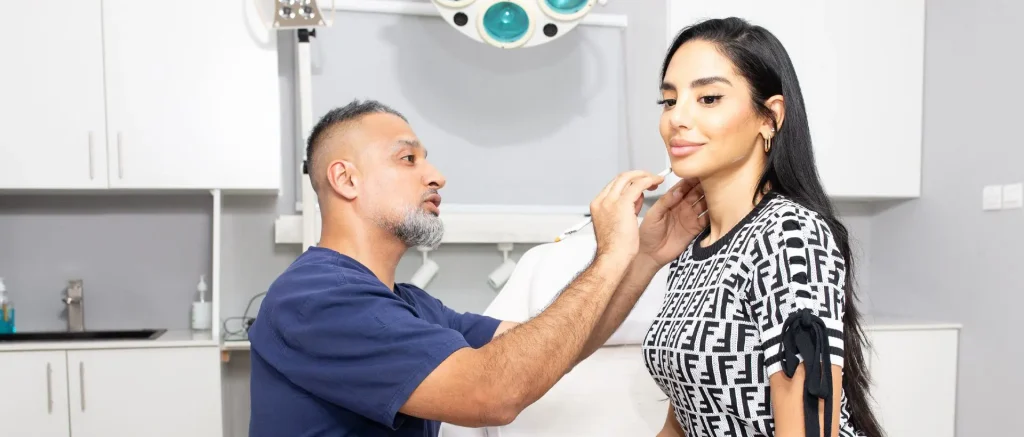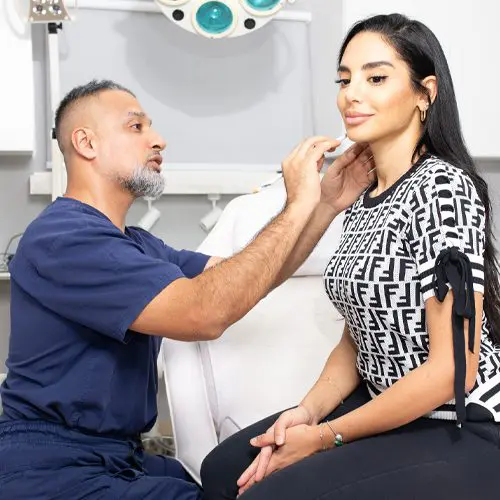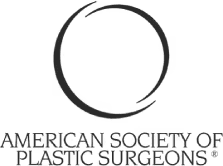Patient Journey
The patient journey with Dr Faisal is a comprehensive experience that helps to ensure a safe and successful outcome.
Consultation
It begins with the first consultation, where a thorough history and examination is taken, and time is spent understanding the patient’s requirements and setting expectations accordingly. Before and after photographs will be shown, as well as sizing of breast implants if necessary. Contact details of previous patients will also be given.
The second consultation will involve going through the procedure again and taking bloods, photographs and signing consent. A deposit will also be taken. The remaining amount must be cleared before the surgery can be performed.

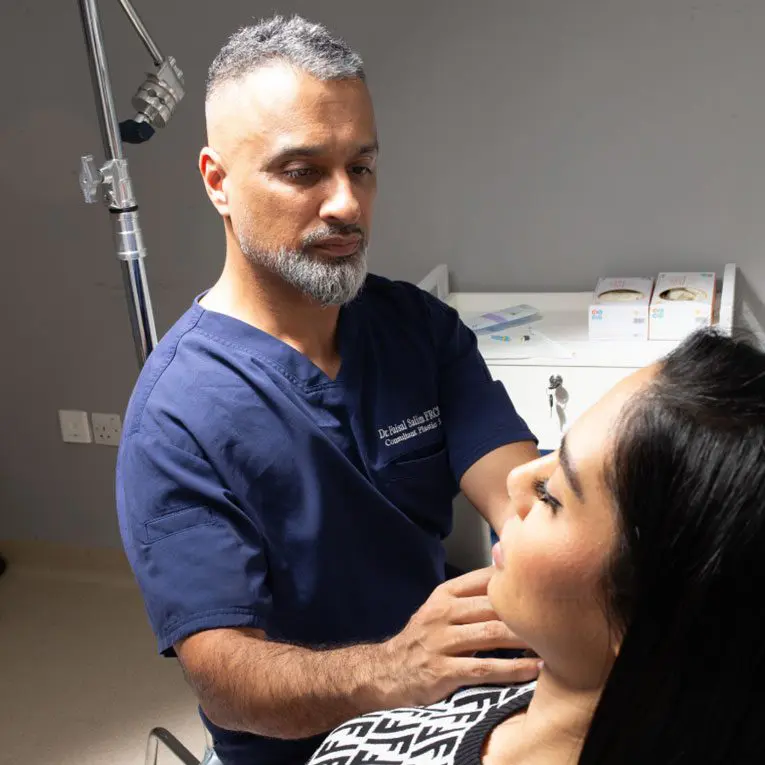
Surgery
A pre-surgery visit to the hospital is also necessary, which is for anaesthetic check and orientation of the patient with the hospital. On the day of the surgery, the patient will report to reception and be directed to the ward, where they will be met by a nurse who will prepare them for the surgery. They will then be transferred to the operating facility, and Dr Faisal will mark them up and anaesthesia will commence.
Following the surgery, the patient will be transferred to the recovery area, then transferred to the ward. If it is a day case, the patient will be given food, mobilised and then discharged with medications and the contact details of Dr Faisal. If it is an overnight stay, the patient will rest that night and Dr Faisal will review them the following morning. They will be mobilised every hour and then safely discharged in the evening.
Aftercare
If the patient has been discharged with drains, Dr Faisal will review them daily by phone, and then decide when to bring the patient back to the clinic. Patients typically visit the clinic at day 4 post op, then at 1 week, 2 weeks, 4 weeks and 6 weeks. Drains will be removed, dressings will be changed, wounds will be reviewed and care for scars will be given. Any other issues will also be addressed.
After 6 weeks, the patient will usually be discharged from the clinic and asked to book a follow up appointment at 3 months, 6 months, 1 year and then yearly. The follow up appointments will include physical examination, review of progress and any further treatment if necessary.
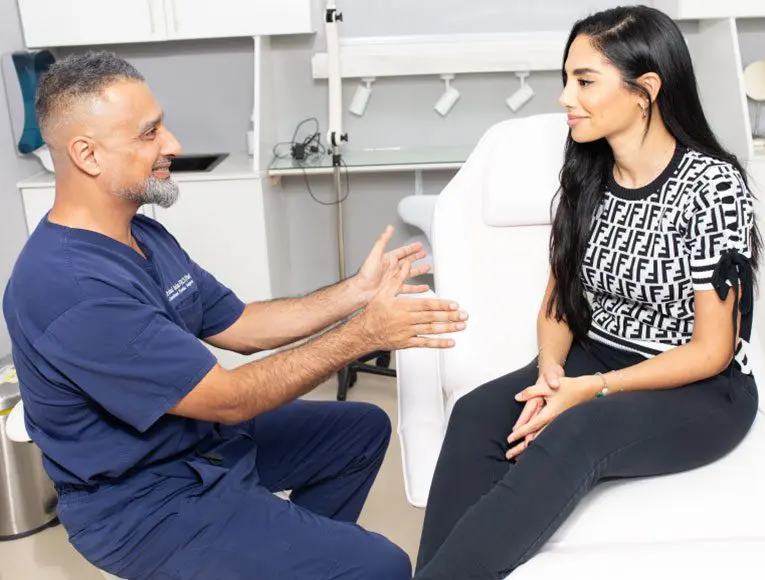
The patient journey with Dr Faisal is designed to ensure the best possible outcome for each patient. It is thorough, comprehensive and tailored to each individual’s needs. With the help of Dr Faisal, patients can be assured of a safe and successful result.
Patient Testimonials
News & Resources
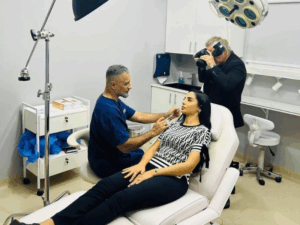
Top treatments at Dr Faisal Salim’s anti aging skin clinic
Anti Aging skin clinic Top Treatments at Dr Faisal Salim’s Anti Aging Skin Clinic As we journey through life, our skin, the body’s largest organ, gracefully (or sometimes not so gracefully) reflects the passage of time. Skin aging is often marked by the appearance of fine lines, wrinkles, volume loss,

Wrinkles on face? Signs you may need a facelift
BREAST LIFT Wrinkles on face? Signs you may need a facelift Looking older than you feel? Your face might be trying to tell you something. Fine lines, deep creases, sagging skin—these are all types of wrinkles on face, and while they’re a natural part of aging, they don’t always match
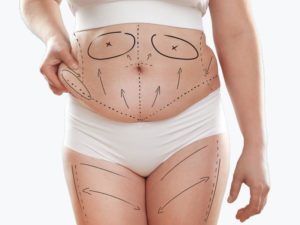
Abdominoplasty vs Tummy Tuck: Is There Any Difference?
Abdominoplasty Abdominoplasty vs Tummy Tuck: Is There Any Difference? Tummy Tuck or Abdominoplasty – Same Goal, Two Names. Let’s Break It Down! If you’ve been exploring ways to achieve a flatter, firmer abdomen—especially after weight loss, pregnancy, or simply due to aging—you’ve likely come across the differences between Abdominoplasty vs
